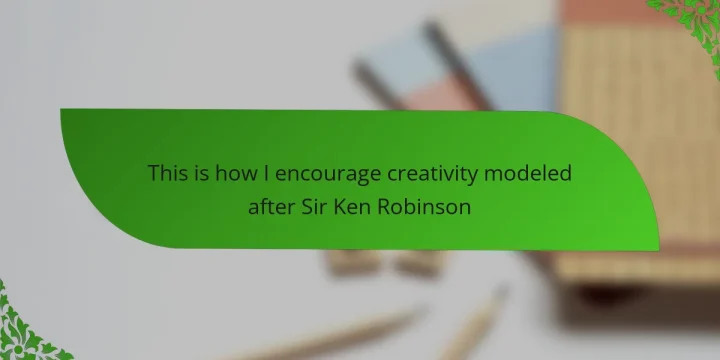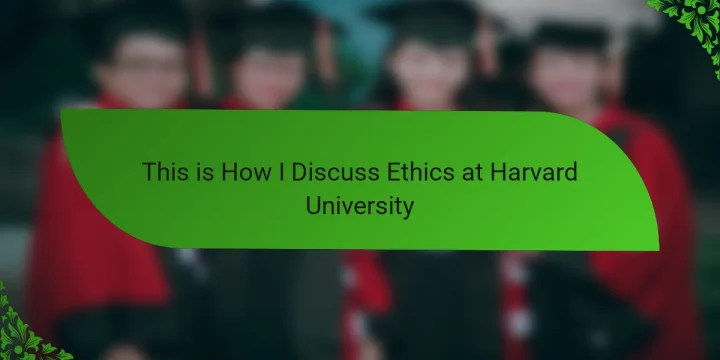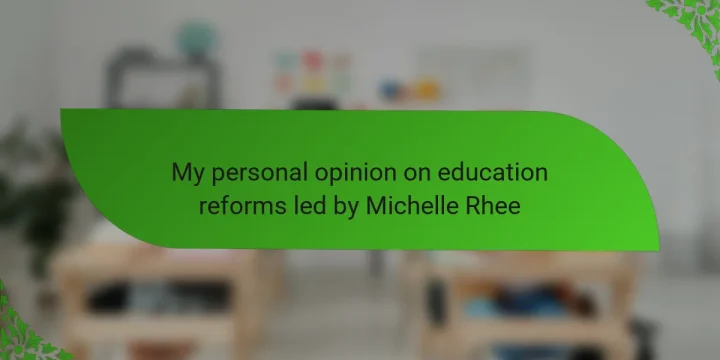
Key takeaways Creativity in education involves nurturing original thinking and problem-solving skills beyond traditional subjects like art and music. Sir Ken Robinson emphasizes that everyone is inherently creative, and education should promote diverse learning styles and view mistakes as opportunities. Creating a safe environment for risk-taking and encouraging exploration can significantly enhance student creativity. Integrating creative activities in lessons, such as brainstorming and role-plays, fosters deeper engagement and understanding of complex concepts. Understanding Creativity in Education Creativity in education isn't just about art or music; it's about nurturing original thinking and problem-solving skills. I remember struggling to see creativity beyond painting or writing until a teacher encouraged me to approach math problems with curiosity rather than fear. Have you ever noticed how unlocking creativity can transform a dull lesson into…

